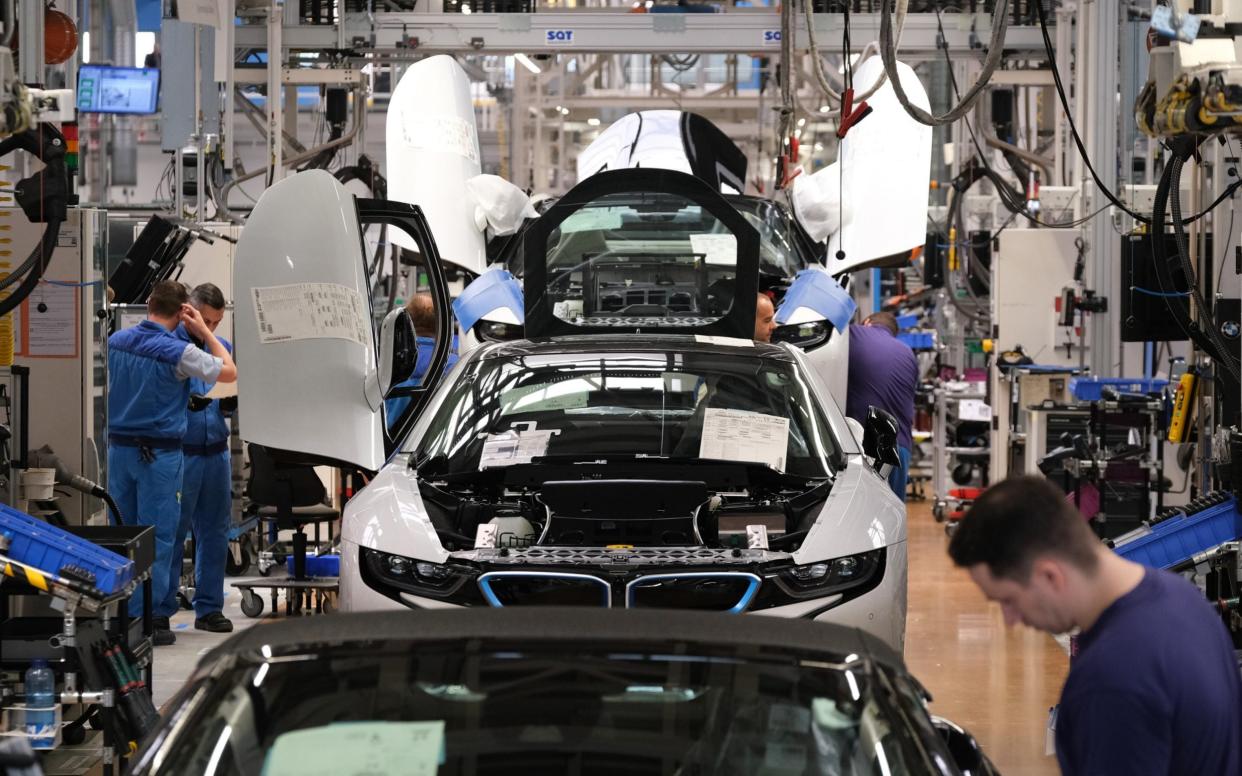Chip shortage could clatter car production for months

Carmakers could be battling a global shortage of electronic chips until the middle of 2021, analysts warned after firms were forced to shut factories across the world.
Daimler, Ford, Fiat Chrysler, General Motors, Honda, Nissan, Renault, Toyota and Volkswagen have all either shut down plants or slashed production after running short of microchips, which have become vital components in modern cars and control everything from engine management to braking and electric windows.
Analysts at IHS forecast that global production of light vehicles will fall by about 485,000 units over the coming three months - equal to about 0.5pc of total output in a normal year.
They expect supplies of semiconductors to recover within six months.
Honda’s plant in Swindon has been among the most high profile British casualties of the shortage, suffering a series of stoppages which it partly attributed to shortages of computer chips.
The site halted production at the end of last week and will restart on Friday. This could lead to shortages of cars and push up prices for models that are in high demand.
Tim Urquhart of IHS said the chip shortage is a foretaste of what could be to come as the world switches to electric vehicles.
He added: “The chip shortage just shows the complexity of modern supply chains in the automotive industry. We will see more of these issues going forward as key parts of new technology are developed for new electric drivetrains.
“Further down the line we could see new breakdowns in the supply chain as new technology develops and there’s a rush to get these; for example, as new types of battery chemistry are discovered.”
Semiconductor industry experts said that it takes time for chip manufacturers – known as “fabs” – to re-purpose production lines to meet demand, making the problems worse.
Bruce Beckloff, boss of Bloc Ventures and former executive at chip-maker Arm, said: “It’s a very challenging time for the chip fabs. You have a lot of pull factors. Fabs are always trying to guess six to 12 months ahead to decide what demand is going to look like.
“The cycle time for a chip can be one month to three months, depending on complexity. The cars are getting mostly the older chip technology. You should see the fabs correct the demand and get the chips flowing over a six to nine-month timeframe.”
However, Mr Beckloff said demand for chips is unlikely to affect the overall pricing of cars.
Problems started after carmakers slashed orders in the face of falling demand when Covid hit, only to be caught out by a stronger-than-expected bounce back in sales over summer.
By the time car firms realised they were running short, they had slipped down the queue as chipmakers focused instead on surging post-lockdown demand for phones, computers and video games. New Playstation and Xbox video game consoles also rook priority.
Car companies are further hobbled by shortages as they cannot build a car with a missing part and then fit this when more stock arrives. The nature of their 'just in time' supply chains means firms do not hold large numbers of spare parts.
Rising sales of electric vehicles are also piling on the pressure, as these pack in even more chip-dependent technology than conventional cars. Average petrol cars have around £300 of chips built-in, but this figure rises to almost £1,500 in a modern electric vehicle.
Audi boss Markus Duesmann said production of some of cars will be delayed because of the massive shortage of semiconductors.
He told the Financial Times that the chip shortage was a “crisis upon a crisis” and said Audi is likely to build 10,000 fewer cars as a result.
Last week Ford said it was shutting shut down a German factory that makes the Focus, one of its bestselling cars, for a month because of the computer chip shortage and lower demand caused by the pandemic.
The plant in Saarlouis will be shut until Feb 19.
According to Bloomberg, the American Automotive Policy Council lobby group is asking the US Commerce Department and President-elect Joe Biden to pressure Asian semiconductor makers into shifting output away from consumer electronics and back towards chips for cars.


